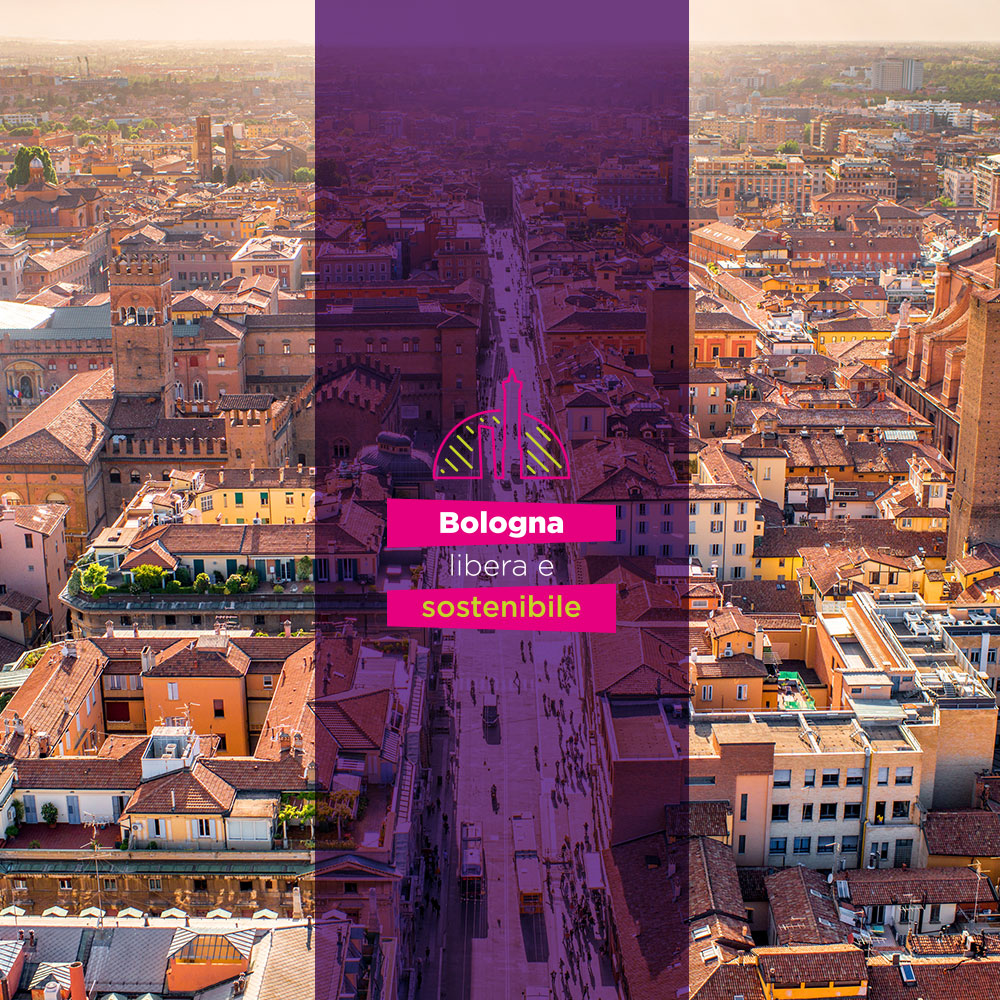
Thanks to the project "Bologna Libera e sostenibile" ("Bologna free and sustainable"), financed by the European Investment Bank (EIB) for the Municipality of Bologna and led by the OCA Global CTA Consortium, urban planning becomes a tool for gender equality.
Bologna is committed to becoming Italy's first "free and sustainable" city. To achieve this, it is working on the definition and adoption of urban planning guidelines from a gender and environmental sustainability perspective. This will be applied in two strategic projects for the city: the new Dozza school complex in the Borgo Panigale-Reno district - designed for new forms of teaching and to make the school a community space, permeable to the neighborhood - and the Via della Conoscenza ("Way of Knowledge") - the main infrastructure of the large Città della Conoscenza ("City of Knowledge") project that connects research sites, new urban settlements, public and green spaces in the northwest quadrant through a network dedicated to slow mobility, bike and pedestrian lanes and a route characterized, recognizable and equipped through new and innovative digital infrastructure technologies. The route physically connects important places for science and research, but also places of memory and historical significance.
But what does a city for women look like?
If we take the example of mobility, it is a city where people walk more and drive less, with improved public transport and bike lanes. It is a city where people not only commute to work, but also within and between neighborhoods: to access services, to go shopping, to do sports, for the daily life of those who do not work (such as the elderly and children). A city reduces inequalities if daily life and its needs are contemplated, supported and simplified; if it is a city designed to be lived by a plurality of people and not only as a place of production. This means fostering the autonomy of the elderly and children, but also improving the quality of public space, to make it a place of relationship and play.
"The city, starting with its form, the design of its streets, infrastructures, services and transport, must be increasingly inclusive, accessible to all, designed for the multitude of different lives that inhabit it," stresses Deputy Mayor Emily Clancy.
Barcelona, to mention another important European city, has created large pedestrian boulevards that allow crossing and connecting different neighborhoods. On the boulevards, shaded areas have been increased, street furniture has been added, trees have been planted and children's playgrounds have been inserted. At the same time, traffic has been shifted to side streets to make the pedestrian boulevards safe, being away from motorized traffic.
However, the responses that urban planning can provide to reduce these inequalities vary according to the characteristics and history of each place, so an analysis of the context is necessary. Based on the experiences of other European cities, under the leadership of the Spanish urban planner Zaida Muxí Martínez and the group of experts Flavia Pesce, Pablo Martínez, Barbara Kenny and Chiara Belingardi, the Municipality of Bologna collected data and elaborated the analysis in order to develop urban planning projects that contribute to reduce inequalities. Gender data, its construction, collection and systematization are the basis of a work that the Municipality of Bologna has carried out, following its adhesion, as the first municipality in Italy, to the #Datapercontare campaign. However, it is not enough to draft guidelines. For changes to be real and lasting, we must create a culture that knows how to welcome and value them. For a free and sustainable Bologna, first and foremost, training and skills development are needed to improve the ability to work with a gender mainstreaming vision. The idea is that Bologna will become, over time and thanks to its projects, a model for other cities.
The project is carried out with the support of the European Investment Bank (EIB) and the technical assistance of OCA Global, the Institute for Social Research (IRS) and the Giacomo Brodolini Foundation.
